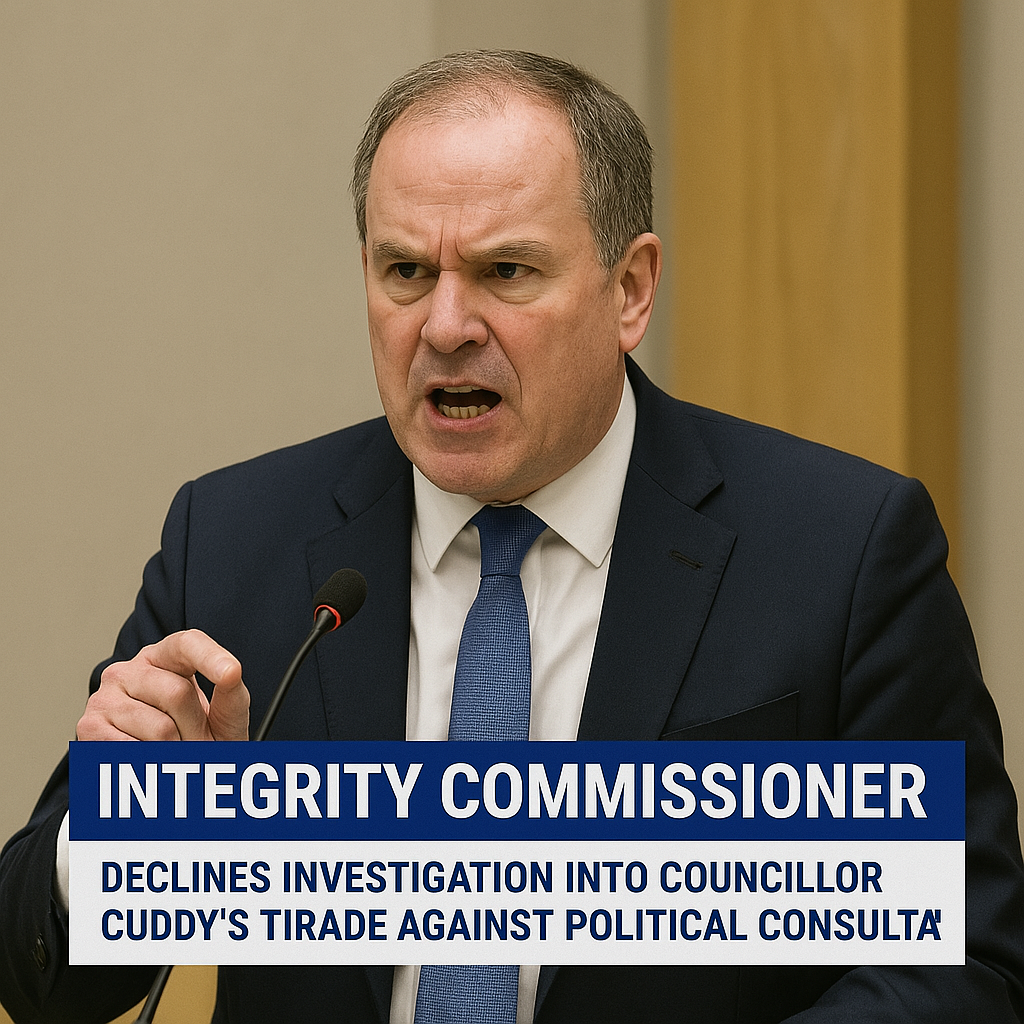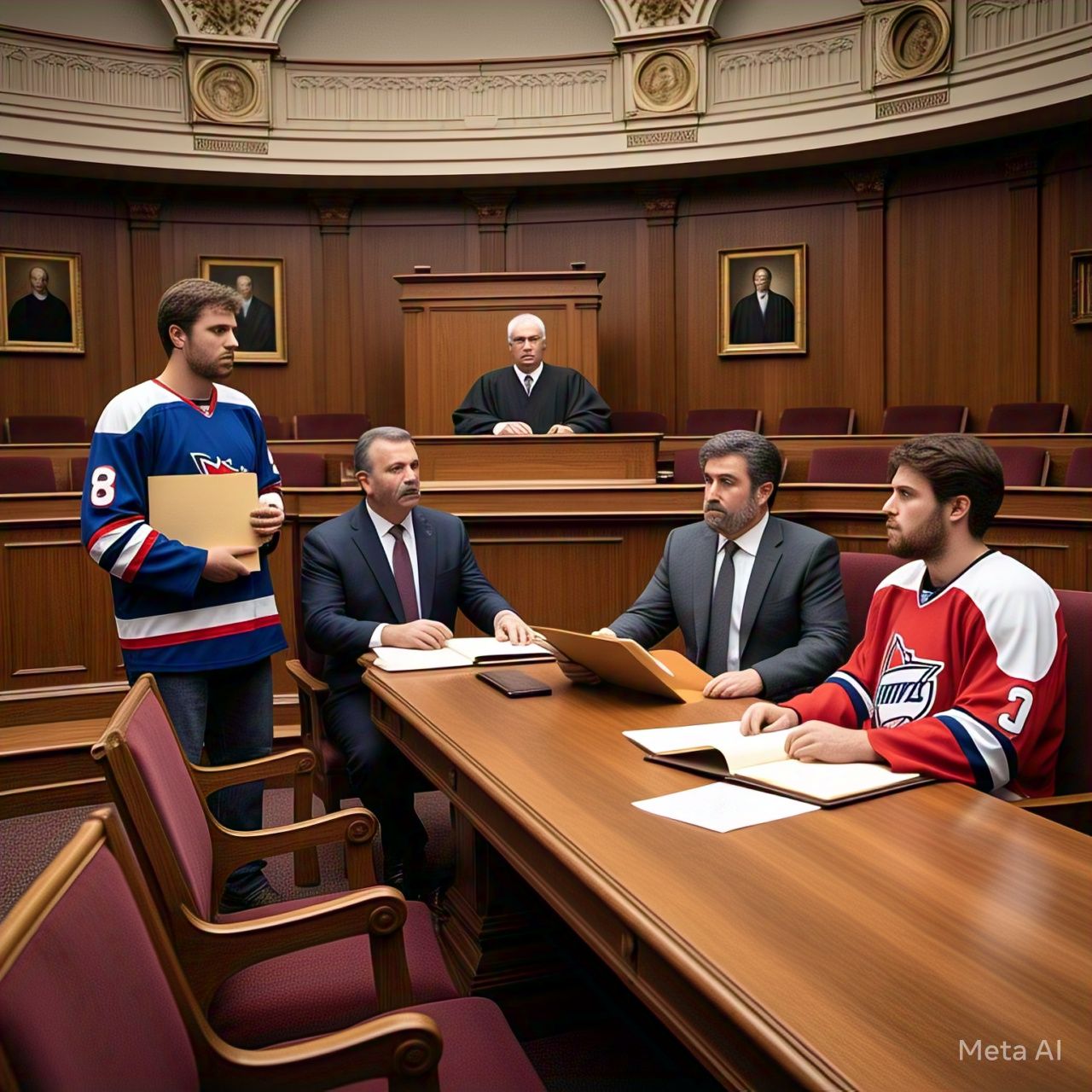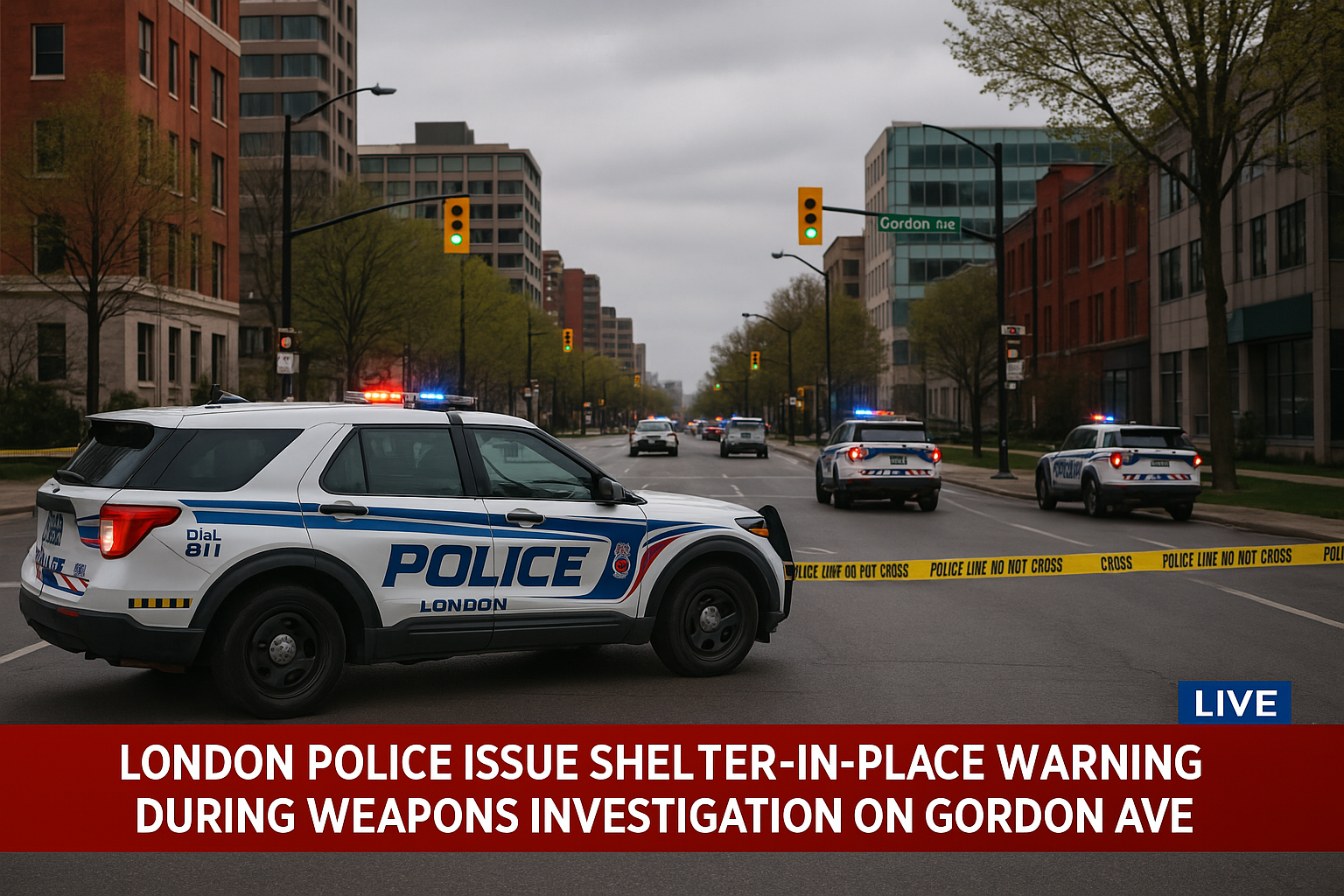
London’s Integrity Commissioner has decided not to investigate Councillor Peter Cuddy following a confrontation with his former political consultant, Zak Rahim, after Rahim served Cuddy with a lawsuit. The incident, which was captured in four cellphone videos, became the subject of a Code of Conduct complaint aired on CTV News.
In a letter sent to the complainant on February 28, the Principles Integrity firm, which handles integrity complaints, explained that a formal investigation and public report were unnecessary. The letter described the incident as an “isolated” one and said that Cuddy was reacting to the actions of Rahim, which the commissioner described as “provocative and confrontational.” The letter also noted that Cuddy had publicly apologized for his actions, both to Rahim and the public.
The videos, which surfaced after the incident, show Rahim handing the lawsuit papers to Cuddy on a sidewalk in front of Cuddy’s home. Cuddy immediately begins shouting expletives at Rahim, grabs the phone Rahim is using to record, and later places his arm around Rahim’s neck in what appeared to be a mocking gesture. Cuddy then challenges Rahim to throw a punch, though Rahim retreats, refusing to engage.
Rahim, who recorded the videos, declined to comment on the Integrity Commissioner’s assessment of his actions as “provocative and confrontational.” In a January interview, Rahim told CTV News, “You do not have my consent to publish my footage.”
The disposition letter suggests that Rahim may bear some responsibility for the incident, noting that the confrontation was avoidable if the lawsuit had been delivered through proper channels, such as a process server. It also pointed out that Rahim was standing in front of Cuddy’s home when the exchange occurred. Despite this, the letter emphasized that municipal councillors, like Cuddy, are expected to handle emotionally charged situations with restraint and control.
Cuddy responded positively to the Integrity Commissioner’s letter, saying it confirmed his version of events, which he had already shared publicly with CTV News. “I was questioned by Principles Integrity, and the answers I provided aligned with all the reports they had,” he explained. “So, I feel vindicated.”
The councillor also pointed out that he has taken proactive steps to address his behavior, including completing a training program offered by the city. “I took a course through the city, and I appreciate city staff for allowing me to do that,” he said.
Principles Integrity has declined to comment further on the letter, stating that it does not publicly discuss disposition letters. However, in a recent council committee meeting, Jeffrey A. Abrams, co-principal of the firm, addressed concerns about their approach to investigations. He explained that the firm does not take on investigations lightly and prioritizes course-correction over punishment.
Meanwhile, the issue has sparked debate among councillors, who have expressed dissatisfaction with Principles Integrity’s performance, particularly in relation to an annual report covering a 20-month period. Some councillors have voiced concerns over the firm’s approach to investigations and how municipal officials can advocate for their constituents.
Next week, London City Council will discuss whether to give 30-days’ notice of the termination of the contract with Principles Integrity. If this recommendation passes, the council will begin the process of selecting a new Integrity Commissioner.
Political scientist Andrew Sancton weighed in on the broader issue, suggesting that the current system of municipalities hiring their own Integrity Commissioners may need reform. “Right now, Integrity Commissioners are competing for projects as if they were paving roads,” Sancton said. He proposed that a more central, provincial mechanism—similar to the Ontario Ombudsman, who oversees closed meetings in municipalities across the province—could improve the process.





